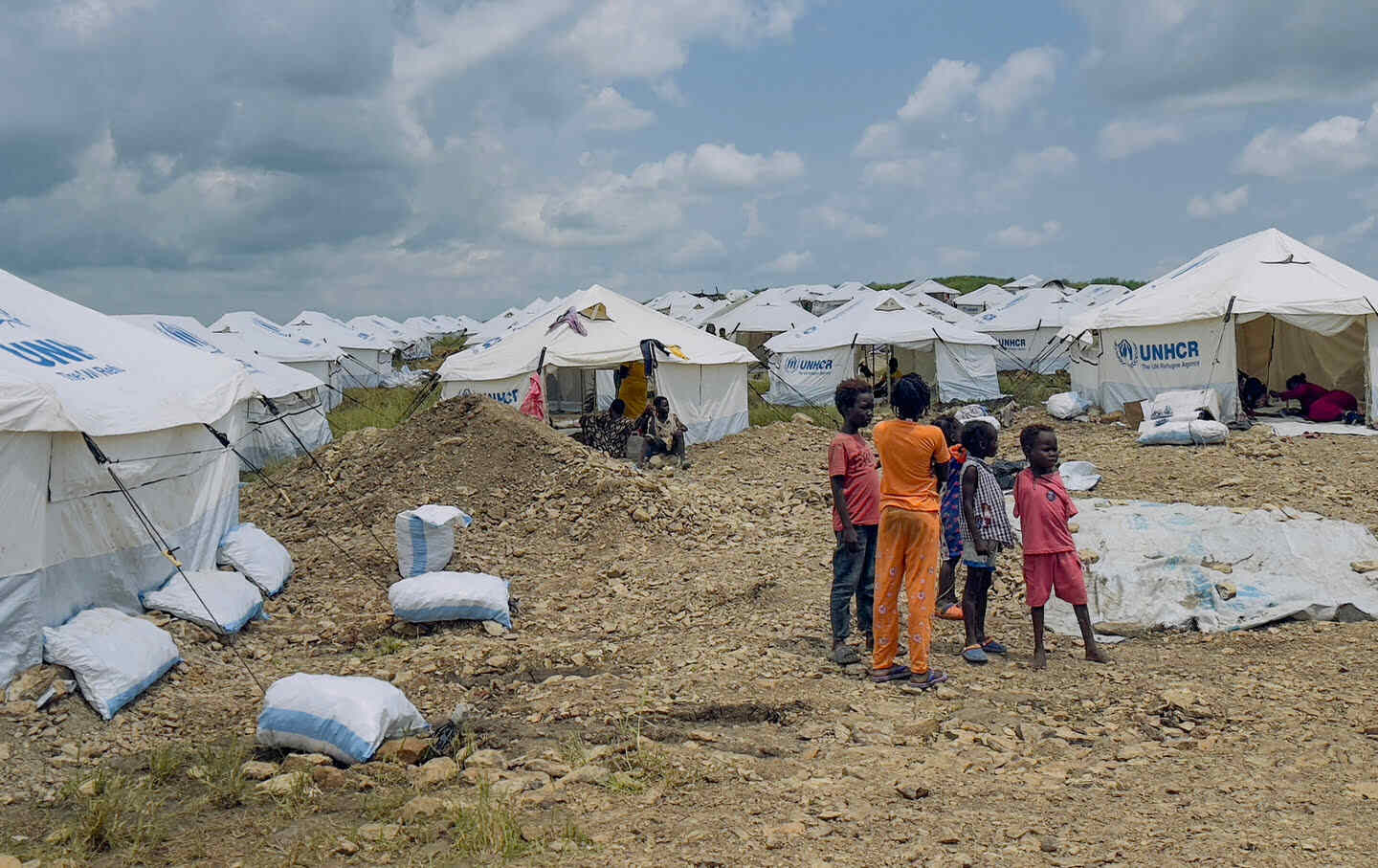The Ongoing Catastrophe of Sudan’s Civil War
On this episode of American Prestige, Khalid Medani on the state of play in Sudan’s civil war.

Here's where to find podcasts from The Nation. Political talk without the boring parts, featuring the writers, activists and artists who shape the news, from a progressive perspective.
On this episode of American Prestige, Derek and Danny are joined by Khalid Medani, associate professor of political science, director of the Institute of Islamic Studies, and chair of the African Studies Program at McGill University, to talk about the state of play in Sudan's civil war. They delve into the military stalemate between the Sudanese Army and Rapid Support Forces (RSF), the humanitarian crisis reaching 13 million displaced and 26 million on the brink of starvation, involvement from outsider actors including Egypt and the UAE, the strategic importance of the besieged city El Fasher in Darfur, the defection of the RSF’s Gezira commander, Abuagla Keikal, over to the Sudanese military, and more.
Note: After the recording of this episode, the RSF massacred 120 people in eastern Sudan.
Advertising Inquiries: https://redcircle.com/brands
Privacy & Opt-Out: https://redcircle.com/privacy

Displaced Sudanese children who have returned from Ethiopia gather amid tents fortified against heavy rain by sandbags, in a camp run by the United Nations Refugee Agency (UNHCR) in Sudan’s border town of Gallabat, on September 4, 2024.
(AFP / Getty Images)On this episode of American Prestige, we’re joined by Khalid Medani, associate professor of political science, director of the Institute of Islamic Studies, and chair of the African Studies Program at McGill University, to talk about the state of play in Sudan’s civil war.
We delve into the military stalemate between the Sudanese Army and Rapid Support Forces (RSF), the humanitarian crisis reaching 13 million displaced and 26 million on the brink of starvation, the involvement from outsider actors including Egypt and the UAE, the strategic importance of the besieged city El Fasher in Darfur, the defection of the RSF’s Gezira commander, Abuagla Keikal, over to the Sudanese military, and more.
Note: After the recording of this episode, the RSF massacred 120 people in eastern Sudan.

Here's where to find podcasts from The Nation. Political talk without the boring parts, featuring the writers, activists and artists who shape the news, from a progressive perspective.
On this episode of American Prestige, Abby Mullen, assistant professor at the US Naval Academy, joins the program to talk about her book To Fix a National Character: The United States in the First Barbary War, 1800–1805. We explore the conflict, American geopolitics in their infancy, the Barbary States and piracy committed on their behalf at the time, how US naval expeditions in an era without a global network of bases functioned, the myth of the war in "The Marines' Hymn", and more.
Advertising Inquiries: https://redcircle.com/brands
Privacy & Opt-Out: https://redcircle.com/privacy
Subscribe to The Nation to Support all of our podcasts
We cannot back down
We now confront a second Trump presidency.
There’s not a moment to lose. We must harness our fears, our grief, and yes, our anger, to resist the dangerous policies Donald Trump will unleash on our country. We rededicate ourselves to our role as journalists and writers of principle and conscience.
Today, we also steel ourselves for the fight ahead. It will demand a fearless spirit, an informed mind, wise analysis, and humane resistance. We face the enactment of Project 2025, a far-right supreme court, political authoritarianism, increasing inequality and record homelessness, a looming climate crisis, and conflicts abroad. The Nation will expose and propose, nurture investigative reporting, and stand together as a community to keep hope and possibility alive. The Nation’s work will continue—as it has in good and not-so-good times—to develop alternative ideas and visions, to deepen our mission of truth-telling and deep reporting, and to further solidarity in a nation divided.
Armed with a remarkable 160 years of bold, independent journalism, our mandate today remains the same as when abolitionists first founded The Nation—to uphold the principles of democracy and freedom, serve as a beacon through the darkest days of resistance, and to envision and struggle for a brighter future.
The day is dark, the forces arrayed are tenacious, but as the late Nation editorial board member Toni Morrison wrote “No! This is precisely the time when artists go to work. There is no time for despair, no place for self-pity, no need for silence, no room for fear. We speak, we write, we do language. That is how civilizations heal.”
I urge you to stand with The Nation and donate today.
Onwards,
Katrina vanden Heuvel
Editorial Director and Publisher, The Nation
